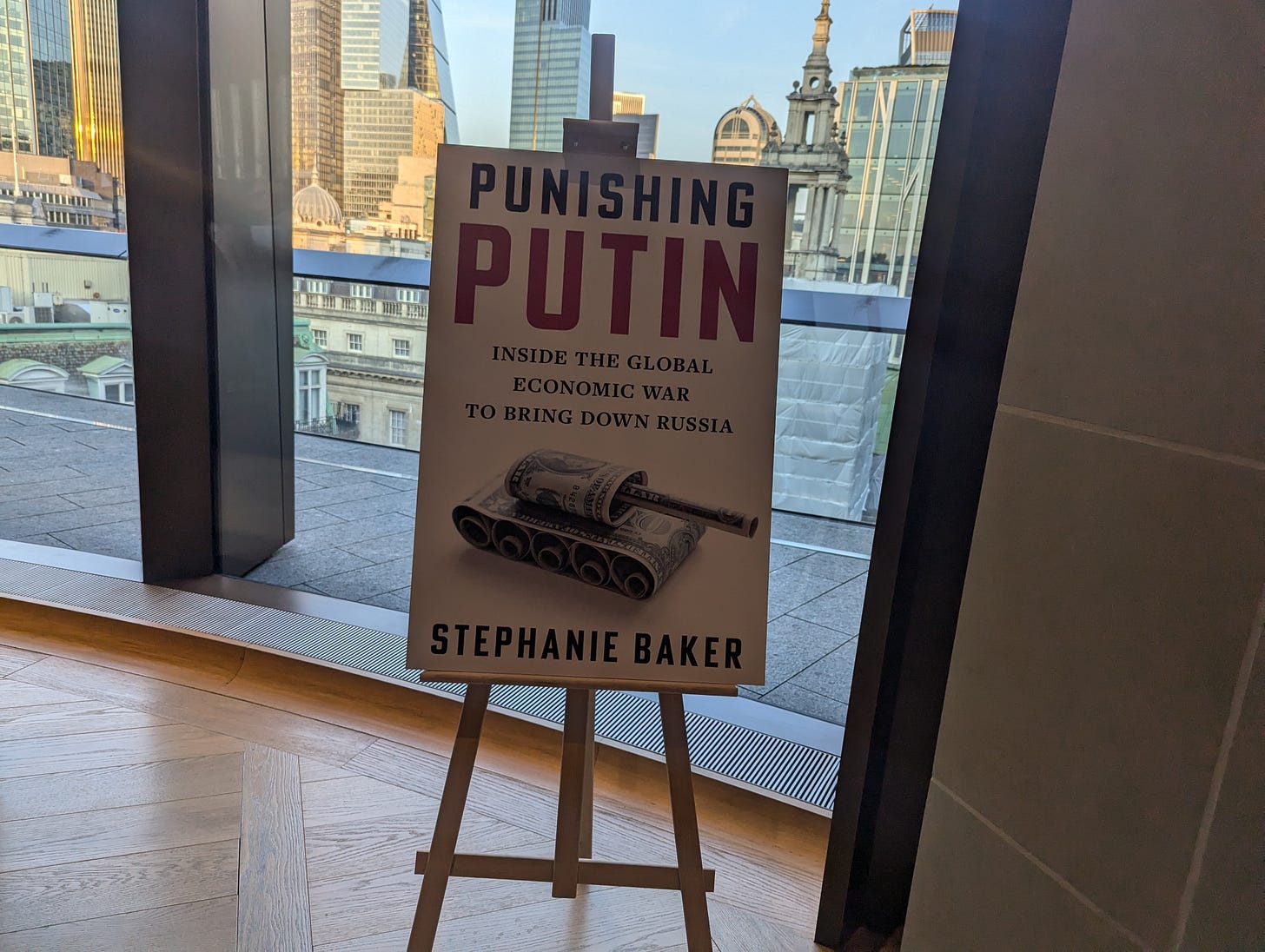Punishing Putin — Stephanie Baker makes sanctions sexy!
I must admit, I picked up this book slightly worried about it being able to hold my focus — given that ‘sanctions’ is one of those eye-glazing words, (ask any news editor!)
I should have trusted my knowledge about the author, Bloomberg’s veteran investigations reporter and former Russia correspondent…



